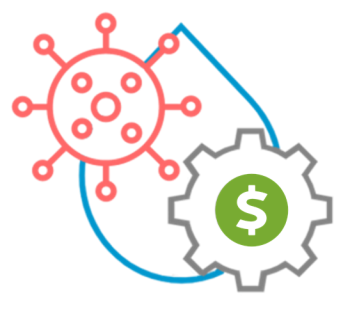These are unprecedented times. As the COVID-19 pandemic continues, social norms have changed and unemployment has risen sharply across the nation. As states have pushed residents to stay home, water usage patterns have altered for both commercial and residential customers. In many cases, commercial customers have decreased use while residential customers have increased. Schools have been closed for months, some of which are the largest water customers in a small town or county. Executive orders have been passed, mandating that service cannot be cut-off for non-payment.
In short, revenues have changed. The level of change varies based on the makeup of the utility’s customer base and the specific hardships within the area, but the change exists in every case. These changes in revenues are typically associated with losses, meaning that budget predictions are off and the actual revenue collected will be much lower than planned.
Utilities will need time to recover these losses. But how do we measure a utility’s ability to bounce back? Bring in the buzz word: Resilience.
At the EFC, we see this pandemic as both very different than anything the US has ever experienced, and also very similar to some of the short-term shocks experienced by utilities in past emergencies. For example, a drinking water utility serving a coastal community that has been walloped by a hurricane. In both cases, utilities that are more financially resilient are more likely to bounce back faster. Continue reading





